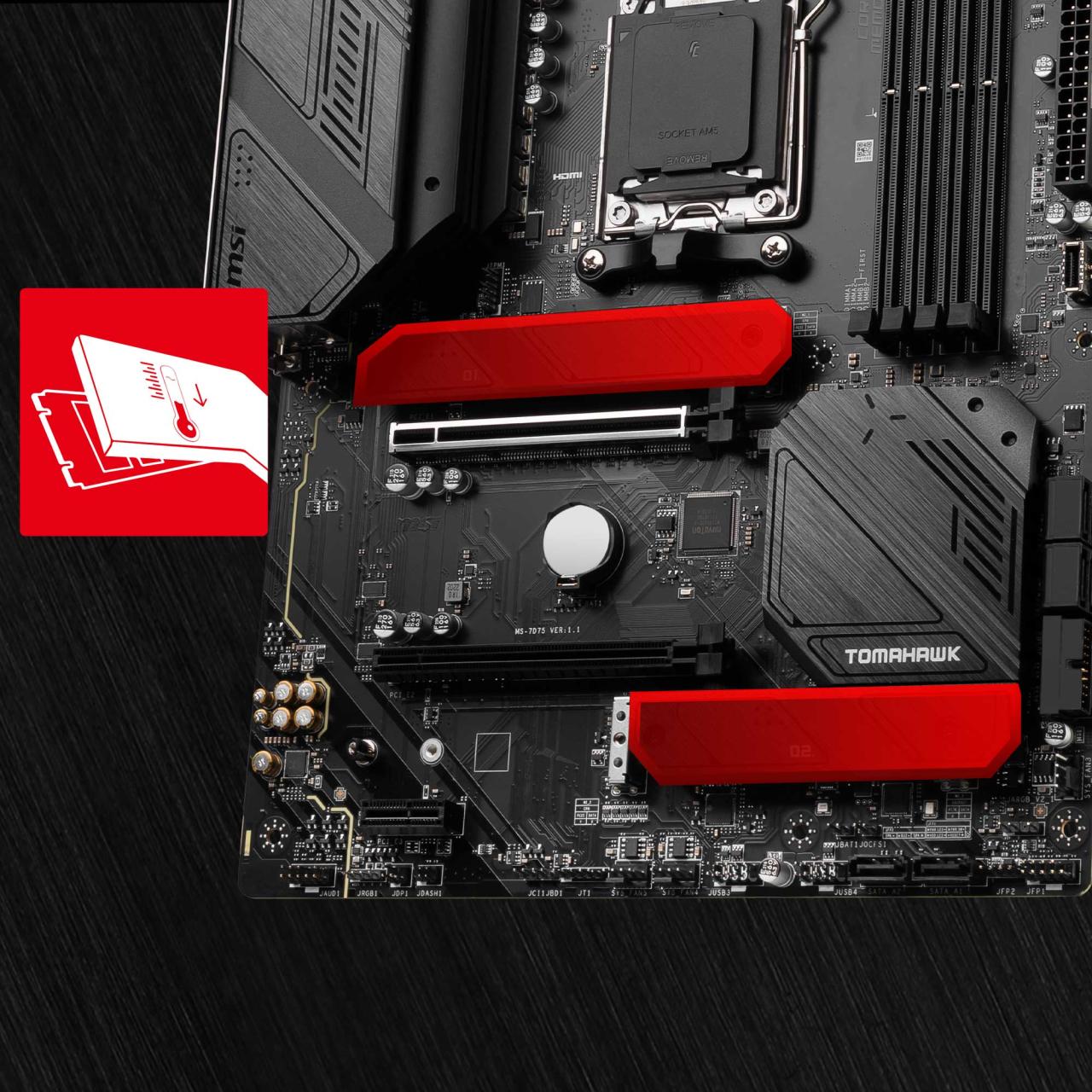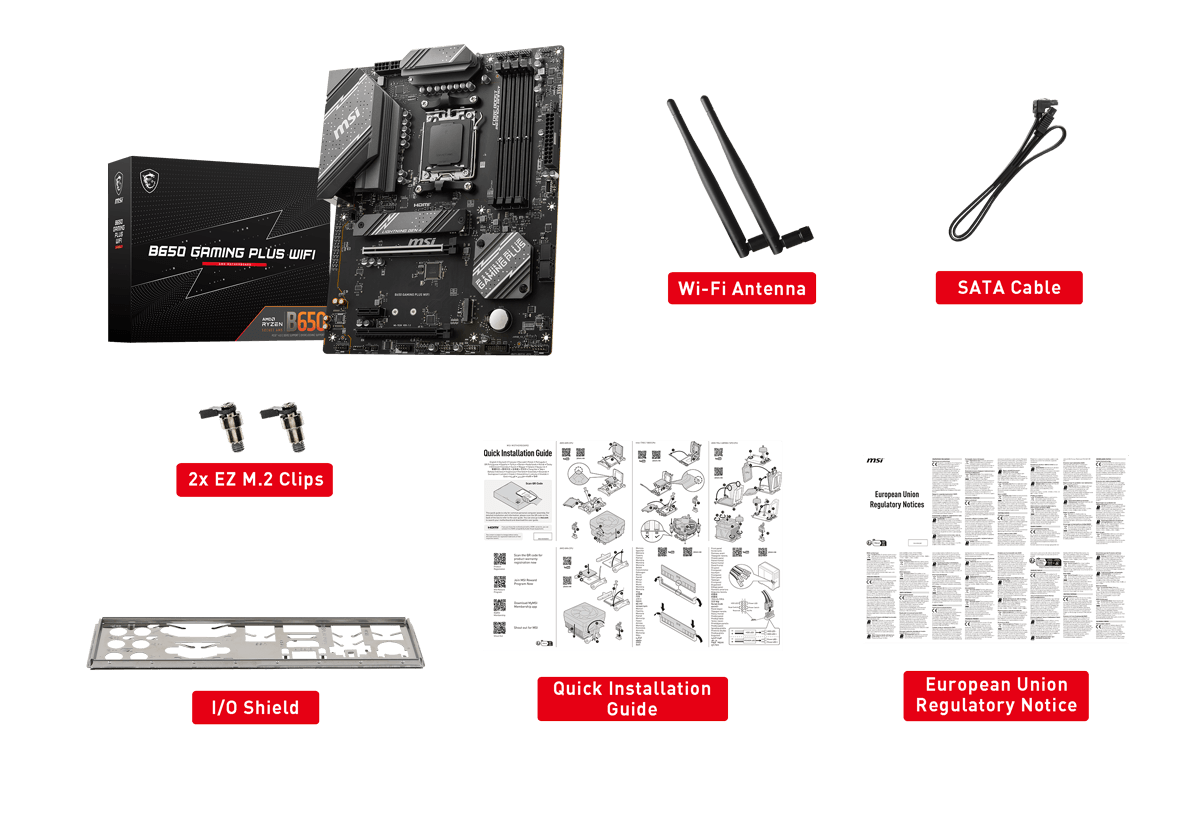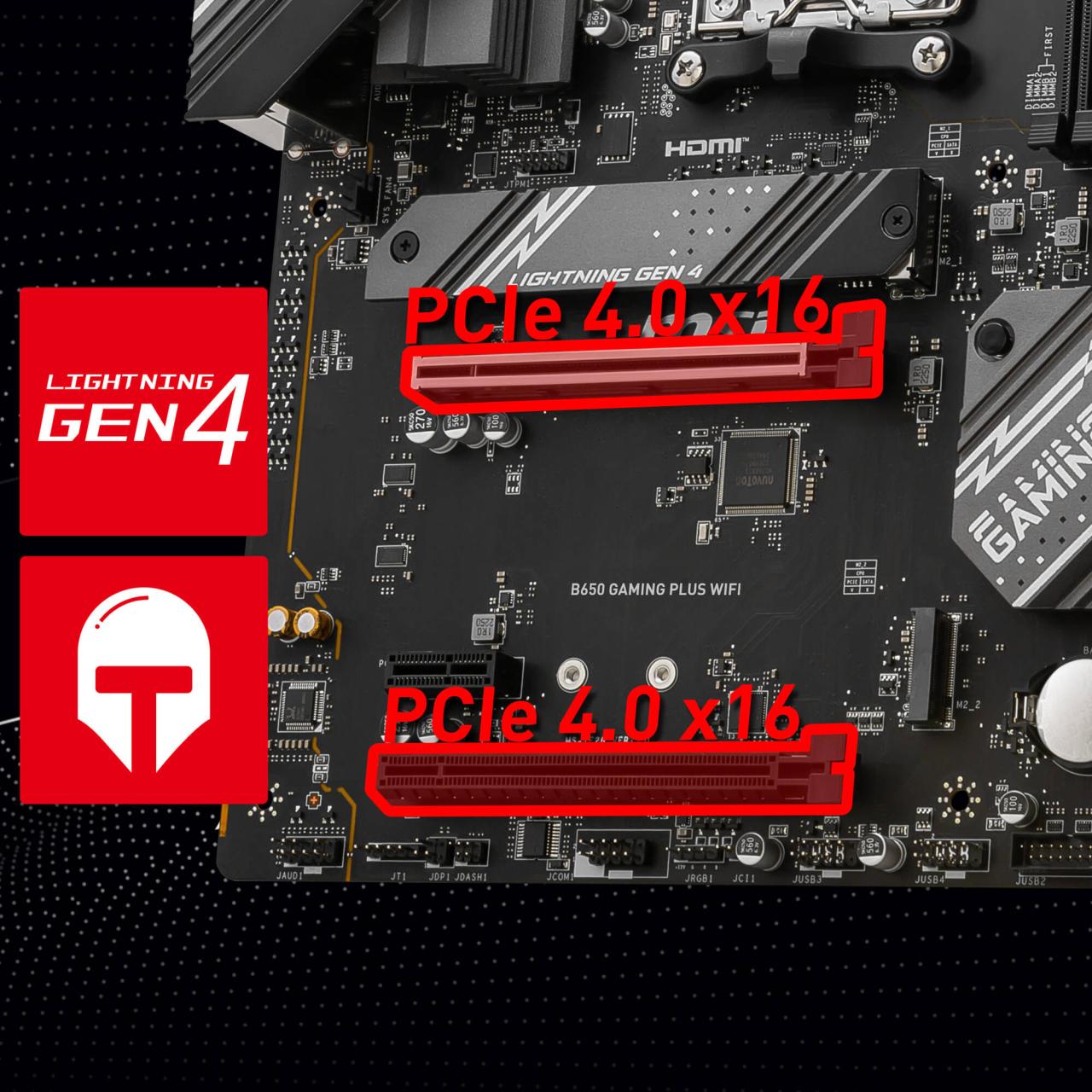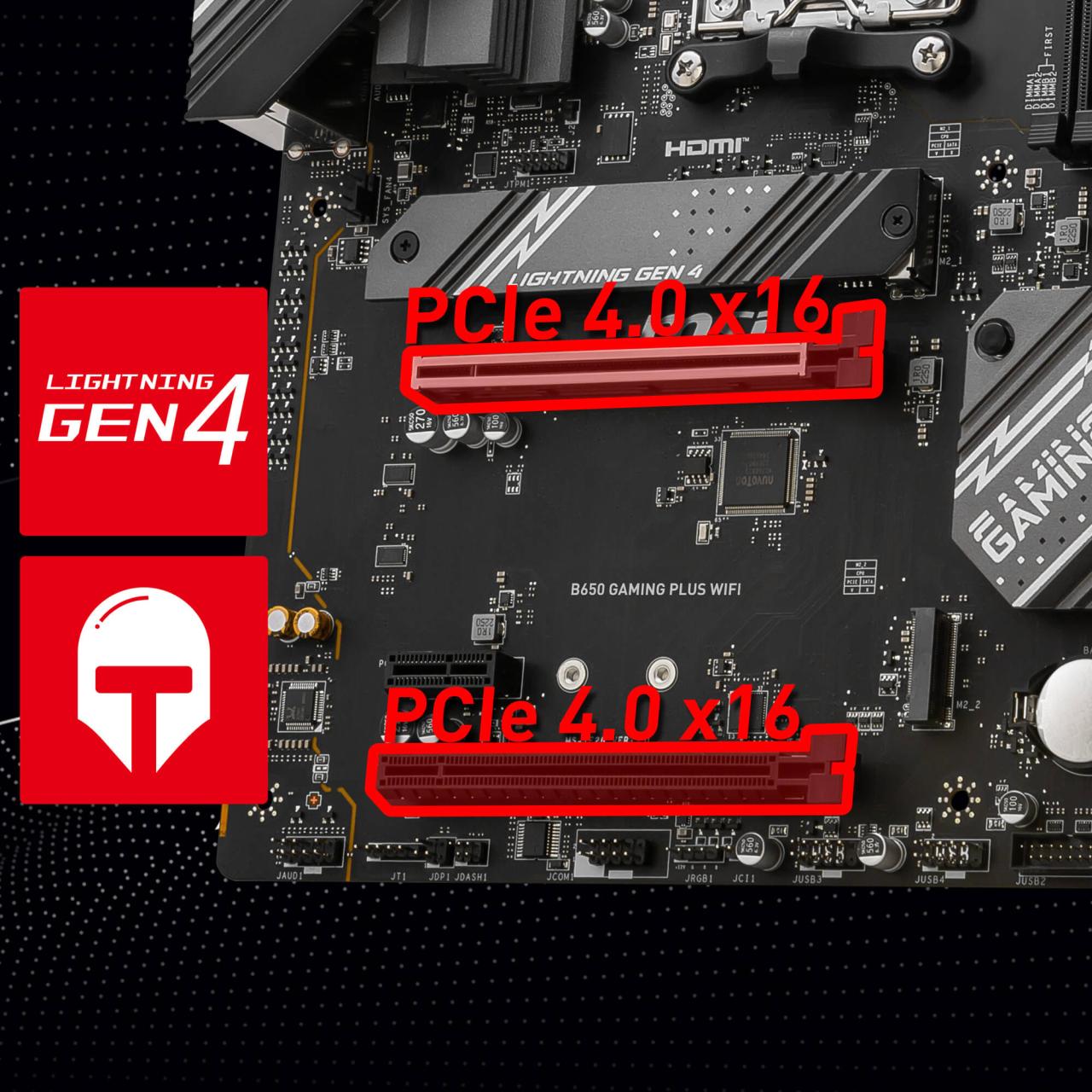MSI B650 Gaming Plus WiFi manual: Dive into the world of this powerful motherboard! This guide will walk you through everything from installation and setup to troubleshooting common problems. We’ll cover BIOS settings, connectivity options, and even offer tips for maximizing performance. Get ready to unlock the full potential of your MSI B650 Gaming Plus WiFi.
Whether you’re a seasoned PC builder or a first-timer, this manual provides clear, step-by-step instructions and helpful explanations to make the process smooth and straightforward. We’ll explore the key features, compare it to competitors, and address frequently asked questions to ensure you’re fully equipped to build and utilize your new system.
MSI B650 Gaming Plus WIFI: A Comprehensive Guide: Msi B650 Gaming Plus Wifi Manual

This guide provides a detailed overview of the MSI B650 Gaming Plus WIFI motherboard, covering its features, BIOS settings, connectivity options, troubleshooting, installation, and software. We aim to equip you with the knowledge to effectively utilize this motherboard.
Product Overview: MSI B650 Gaming Plus WIFI, Msi b650 gaming plus wifi manual
The MSI B650 Gaming Plus WIFI motherboard is a mid-range offering designed for gamers and PC enthusiasts seeking a balance between performance and affordability. Key features include support for AMD Ryzen 7000 series processors, PCIe 5.0 support for high-speed graphics cards and storage, and integrated Wi-Fi 6E and Bluetooth 5.2 for seamless connectivity. The target audience includes budget-conscious gamers, content creators, and general PC users who want a reliable and feature-rich motherboard without breaking the bank.
Compared to similar motherboards in its price range, the MSI B650 Gaming Plus WIFI often stands out with its robust feature set, including improved VRMs for better overclocking capabilities and a more comprehensive set of I/O options.
| Motherboard | Price (USD) | Chipset | Key Features |
|---|---|---|---|
| MSI B650 Gaming Plus WIFI | ~180 | AMD B650 | PCIe 5.0, Wi-Fi 6E, Bluetooth 5.2, Multiple M.2 slots |
| ASUS Prime B650M-A WIFI | ~170 | AMD B650 | Wi-Fi 6E, Bluetooth 5.2, M.2 slots, Emphasis on stability |
| ASRock B650M PG Riptide | ~160 | AMD B650 | PCIe 4.0, Wi-Fi 6, M.2 slots, Compact Micro-ATX form factor |
| Gigabyte B650M DS3H AX | ~150 | AMD B650 | Wi-Fi 6E, Bluetooth 5.2, M.2 slots, Value-oriented features |
BIOS and UEFI Settings
The BIOS/UEFI is the primary interface for configuring the motherboard’s hardware settings. Major settings include CPU configuration (overclocking, voltage adjustments), memory settings (XMP profiles, timings), boot order, and peripheral configuration (audio, network). Updating the BIOS firmware typically involves downloading the latest version from MSI’s website and flashing it through the BIOS utility. Overclocking the CPU and RAM requires careful monitoring of temperatures and stability.
Onboard audio and network settings are usually straightforward to configure, with options for selecting audio output devices and configuring network protocols.
- Enter the BIOS/UEFI by pressing the designated key (usually DEL or F2) during startup.
- Navigate to the “XMP Profile” or similar setting in the memory section.
- Select your desired XMP profile (usually Profile 1 or 2).
- Save the changes and exit the BIOS/UEFI.
- Restart your system to apply the changes.
Connectivity and Expansion

The MSI B650 Gaming Plus WIFI offers a range of expansion slots and ports. Expansion slots typically include multiple PCIe x16 slots for graphics cards, PCIe x1 slots for expansion cards, and several M.2 slots for NVMe SSDs. USB ports include a mix of USB 3.2 Gen 2 and USB 2.0 ports, providing high-speed connectivity for peripherals. The integrated Wi-Fi 6E and Bluetooth 5.2 offer fast and reliable wireless connectivity.
Compared to other B650 motherboards, the port and slot configuration is generally competitive for its price range.
Port and Expansion Slot Layout (Descriptive Diagram): The motherboard features a rear I/O panel with various ports clustered together for easy access. These include multiple USB ports (both Type-A and Type-C), audio jacks, LAN port, and antennas for Wi-Fi. The PCIe slots are located towards the CPU socket, allowing for easy installation of high-end graphics cards. M.2 slots are positioned near the PCIe slots for optimal performance.
The 24-pin ATX power connector is located near the bottom edge of the motherboard, and the CPU power connector is near the CPU socket.
Troubleshooting Common Issues

Common problems include boot failures (often due to incorrect component installation or BIOS settings), network connectivity issues (driver problems, incorrect settings), and USB port malfunctions (driver issues, power supply problems). Boot problems can often be resolved by checking component connections, resetting the CMOS, and updating the BIOS. Network connectivity issues can often be resolved by checking cable connections, updating drivers, and ensuring the network settings are correct.
So you’ve got your hands on the MSI B650 Gaming Plus WiFi manual – congrats! Getting that motherboard set up right is key. Need a break from the tech specs? Check out the awesome aerial photography possibilities with dji drone canada , then get back to optimizing your PC build using that manual. You’ll be gaming in no time!
USB port problems can sometimes be resolved by checking the USB ports themselves, drivers, or power supply. Preventing problems often involves proper installation, regular maintenance, and using quality components.
Installation and Setup
Installing the motherboard involves several steps: preparing the case, installing the CPU, mounting the motherboard, installing RAM, connecting the power supply, and connecting peripherals. Proper grounding is crucial to prevent static electricity damage. Ensure that the CPU is properly seated and the RAM is correctly installed in the designated slots. Connecting the power supply requires careful attention to the 24-pin ATX power connector and the CPU power connector.
- Anti-static wrist strap
- Phillips head screwdriver
- CPU installation tool (if necessary)
- Thermal paste
Software and Drivers
The MSI B650 Gaming Plus WIFI typically comes bundled with MSI Center software for system monitoring and control. Necessary drivers include chipset drivers, audio drivers, and network drivers. Installing drivers usually involves downloading them from MSI’s website or using the included installation disc. Keeping drivers up-to-date ensures optimal performance and stability. MSI Center provides a centralized interface for managing various system aspects, including fan control, overclocking settings, and RGB lighting.
| Software/Driver | Function | Installation Method |
|---|---|---|
| MSI Center | System monitoring, fan control, RGB lighting | Download from MSI website |
| Chipset Drivers | Enable functionality of chipset components | Download from MSI website |
| Audio Drivers | Enable audio functionality | Download from MSI website |
| LAN Drivers | Enable network functionality | Download from MSI website |
Final Thoughts
Mastering your MSI B650 Gaming Plus WiFi motherboard is now within reach! This guide has equipped you with the knowledge to confidently install, configure, and troubleshoot your system. From understanding BIOS settings to maximizing connectivity, you’ve gained valuable insights to build a high-performing PC. Remember to consult the official MSI website for the latest drivers and updates to keep your system running smoothly.
So you’re diving into the MSI B650 Gaming Plus Wifi manual – good choice! It’s packed with info, but sometimes you need a break. Maybe check out this helpful guide on which DJI drone to buy before getting back to the BIOS settings and all that. Then, once you’re refreshed, you can tackle the MSI manual again with renewed focus!
Question Bank
What CPU sockets are compatible with this motherboard?
The MSI B650 Gaming Plus WiFi supports AM5 CPUs.
How much RAM can this motherboard handle?
It supports up to 128GB of DDR5 RAM.
Need help setting up your MSI B650 Gaming Plus WiFi motherboard? Grab the MSI B650 Gaming Plus WiFi manual – it’s a lifesaver! While you’re at it, maybe check out the current ses stock prices if you’re thinking about upgrading other components. Once you’ve got your system sorted, the manual will guide you through BIOS settings and troubleshooting any potential issues.
Does this motherboard include onboard audio?
Yes, it features high-definition audio.
What type of Wi-Fi does it use?
It typically uses the latest Wi-Fi standard available at the time of release (check the specifications).
Where can I find the latest BIOS updates?
Visit the official MSI website’s support section for your motherboard model.
